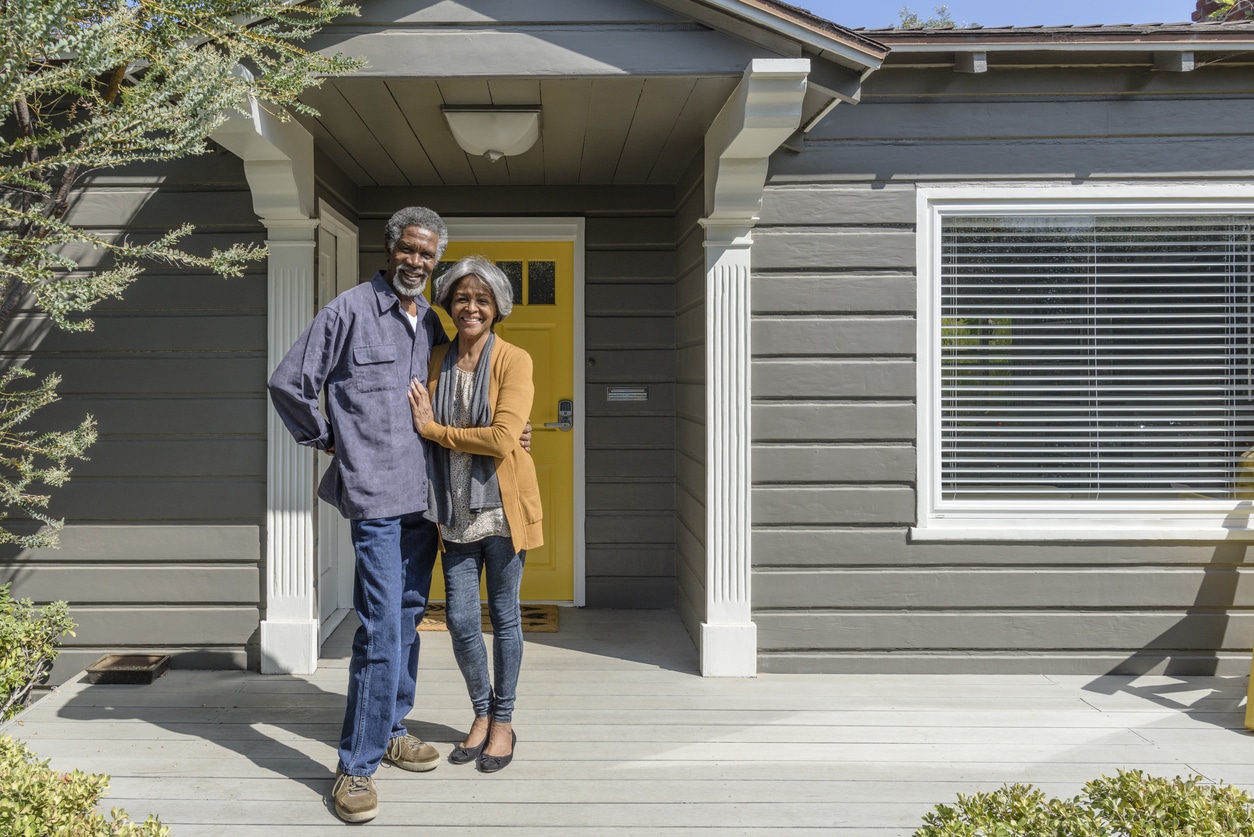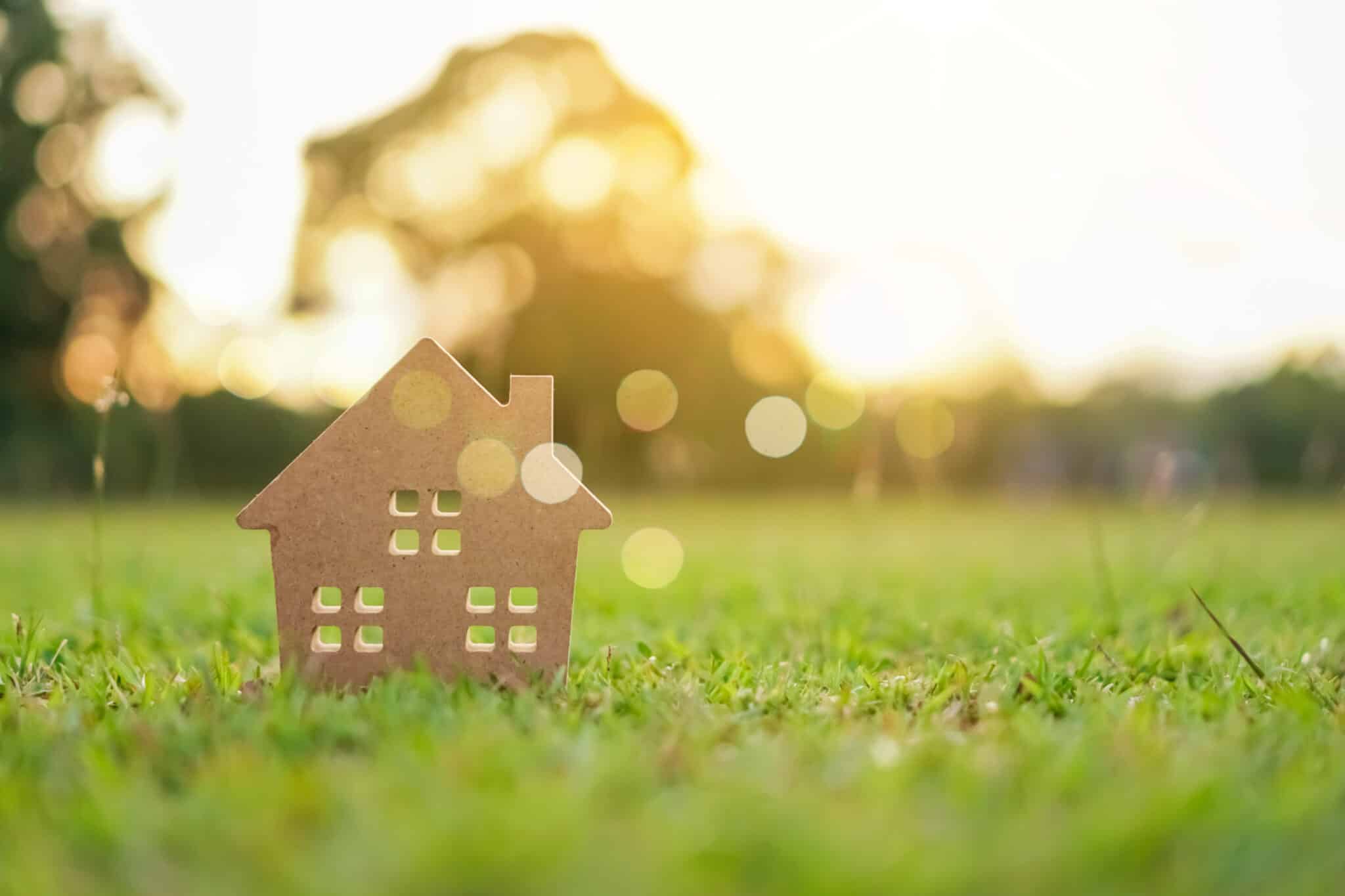There are a lot of questions that can crop up when you’re ready to buy a new home. One of the first questions your Realtor may ask is whether you’re looking for a new construction home—one that’s just been built, so you’ll be its first resident—or a resale property. Before you make that decision, it’s important to take a careful look at the features you’re looking for in your home, your potential budget, and any other factors that could influence the ideal home for you.
New Construction Homes: The Top Benefits

New construction homes often have a lot of benefits built in.
1. Modern Solutions
New construction homes often use not only the latest design trends, but also the features that can be harder to incorporate into older homes. That can include solutions like:
- Energy-efficient appliances
- Better insulation
- Smart home technology
Smart home technology is particularly beneficial for seniors. It can offer convenience and accessibility, not to mention increased safety. Carefully review available options and how they offer benefits to your overall quality of life.
2. Decreased Maintenance Requirements and Costs
New build homes often come with builder warranties, which means that if there’s an unexpected problem with your new home, you can rely on the warranty to get it taken care of. They may also have fewer maintenance and repair requirements, which can be particularly beneficial for seniors with declining mobility, strength, or energy.
3. Increased Customization Options
When you’re thinking about moving after 55, customization isn’t just about making the property look like you want it to. It also includes ensuring that the property fits your safety needs, especially if you’re planning to age in place. You can do things like reducing the number of stairs in the property, installing grab bars in the bathroom, or even ensuring that cabinets and shelves are placed lower on the wall so that you can reach them from a wheelchair, if that’s a consideration you’ll have in the future.
The Biggest Benefits of Resale Homes

While purchasing a new build can carry with it many potential advantages, pre-owned homes also have many possible benefits.
1. Decreased Purchase Costs
If you’re working with a tight budget, a resale home may be less expensive than a brand-new build. Choosing a home in good condition, including one where the current owners have taken care of most essential maintenance, can help you save money on your home purchase. If you need a larger property—including one with extra rooms for guests or overnight visits from the grandkids—you may get more space for your dollar when considering a resale home. In addition, resale homes may have more room for negotiation in their overall pricing, especially if they have been on the market for a while.
2. Personality and Unique Features
Many new build homes are very similar, especially within neighborhoods or planned communities. If you’re looking for a unique home—one that brings its own character to the table—you may want to consider the benefits of moving into a resale home.
3. Established Communities and Amenities
Resale homes are often in established neighborhoods: places where there’s already a strong neighborhood culture in place. In addition, those neighborhoods may already be close to the amenities you need most. For example, in some areas, the neighborhood may even include community amenities like golf courses, swimming, or walking trails. In new build areas, those amenities may not yet be established, which can make it harder for you to find new places to walk, play, or work.
Considering New Construction vs Resale: Questions To Ask

As you consider whether to buy a new build home or a resale one, there are several things you may want to consider. By asking yourself these questions, you can more easily determine which type of property is best for your needs.
1. What is Your Budget?
Whether you’re planning to sell or keep your existing home before you move into a new property, carefully consider what your budget looks like. That may mean everything from how much you can put down as a down payment or how much your current property is worth to how much you can afford to pay on a mortgage each month. Laying out your budget can make it easier to decide what type of home you can afford.
2. What Features Are Most Important to You?
When you think of your dream home, what features, solutions, and amenities do you need most? If you’re over 55, your priorities may be very different than when you were younger. Back then, it may have been all about school districts or access to parks and playgrounds. Now, however, you may have very different needs. Consider things like:
- What do your health needs look like? What does that mean for the senior living solutions that you may need, either now or within a few short years?
- How much home do you need? Do you need a guest room? What about extra space for a home office?
- Do you want a home that has character?
- How are you positioned—both physically and financially—to take care of home maintenance needs?
- Do you want smart home technology, upgraded appliances, and other modern benefits, or do you prefer more traditional solutions?
Carefully evaluating those elements can help you determine whether you’re looking for a new build home or a resale. In addition, answering those questions for yourself can make it easier to narrow down which things are most important to you as you purchase a home, so that you can prioritize the elements that are at the top of your list.
3. What Amenities Do You Want or Need?
Community amenities can be just as big a selling point as the property itself. In many 55+ communities, you’ll find a wide range of amenities that any resident can access, including parks, recreation areas, walking paths, community centers offering a range of classes, fitness facilities, and more. Take the time to review what amenities are available in the neighborhoods you’re considering and evaluate how important they are to you. In some cases, those amenities may help you determine what type of property you need and what neighborhood you want to move into.
Find the Property of Your Dreams
At 55places, we understand the importance of selecting the right property for yourself and your family. When you move over the age of 55, you often intend to stay in that home for the rest of your life, which means it needs to fit your needs. Connect with us to learn more about how our agents can help match you to your dream property!






